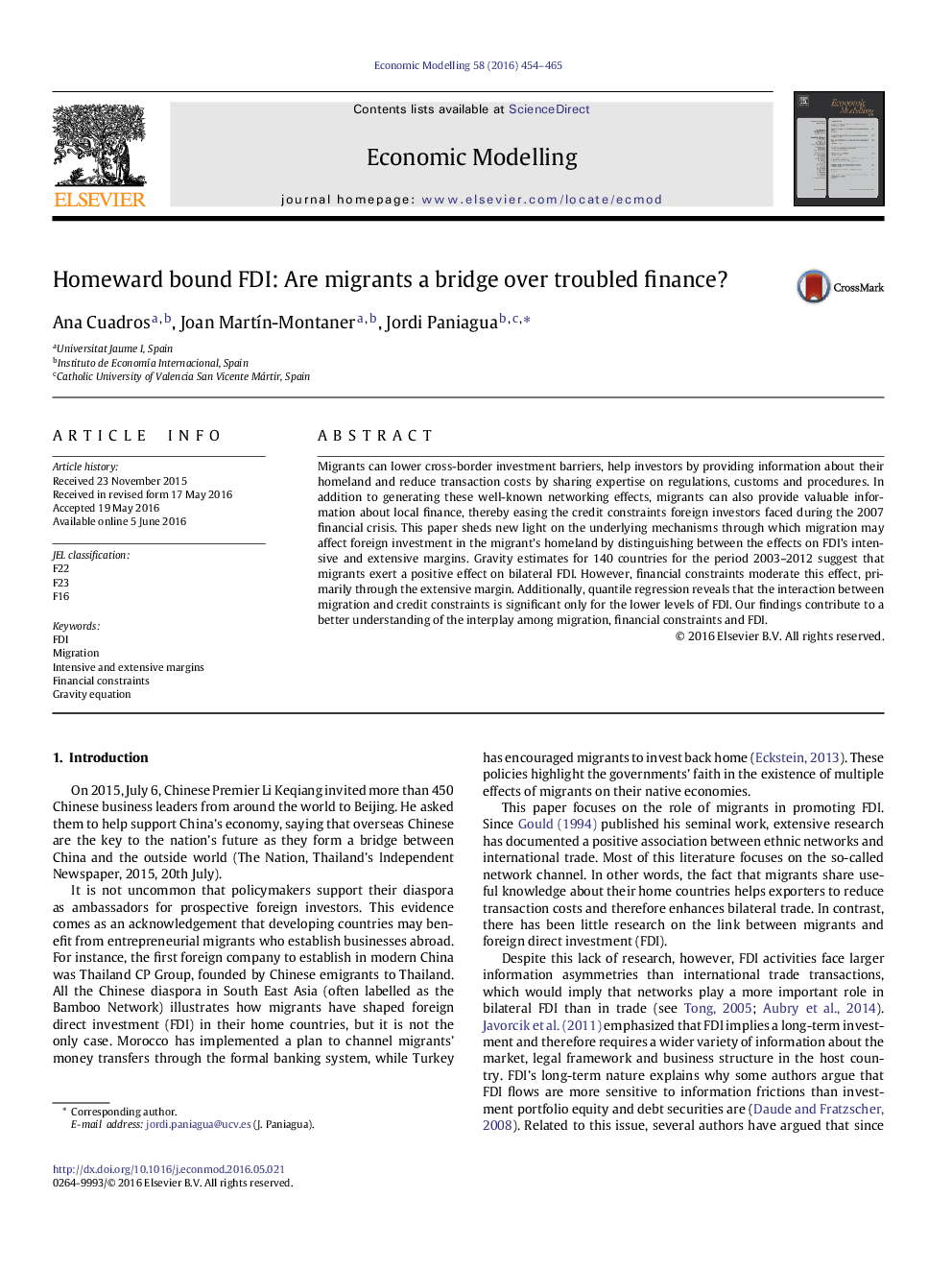| Article ID | Journal | Published Year | Pages | File Type |
|---|---|---|---|---|
| 5053496 | Economic Modelling | 2016 | 12 Pages |
â¢This paper studies a new underlying mechanism for the migration-FDI linkâ¢This paper provides a novel theoretical and empirical approach to examine how financial frictions may affect the migration-FDI linkâ¢Financial constraints moderate the positive effect of migrants on FDI primarily through the extensive marginâ¢Banking crises at the migrant's host (home) country augment (mitigate) migrant's effect on FDIâ¢The interaction between migration and banking crises is significant only for the lower levels of FDI
Migrants can lower cross-border investment barriers, help investors by providing information about their homeland and reduce transaction costs by sharing expertise on regulations, customs and procedures. In addition to generating these well-known networking effects, migrants can also provide valuable information about local finance, thereby easing the credit constraints foreign investors faced during the 2007 financial crisis. This paper sheds new light on the underlying mechanisms through which migration may affect foreign investment in the migrant's homeland by distinguishing between the effects on FDI's intensive and extensive margins. Gravity estimates for 140 countries for the period 2003-2012 suggest that migrants exert a positive effect on bilateral FDI. However, financial constraints moderate this effect, primarily through the extensive margin. Additionally, quantile regression reveals that the interaction between migration and credit constraints is significant only for the lower levels of FDI. Our findings contribute to a better understanding of the interplay among migration, financial constraints and FDI.
